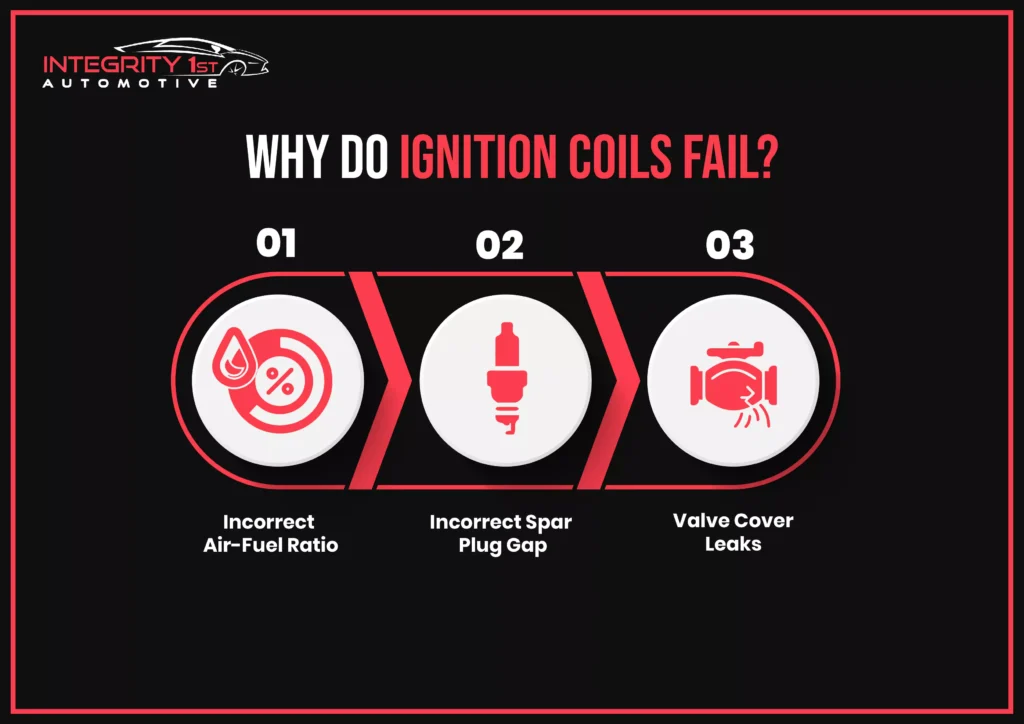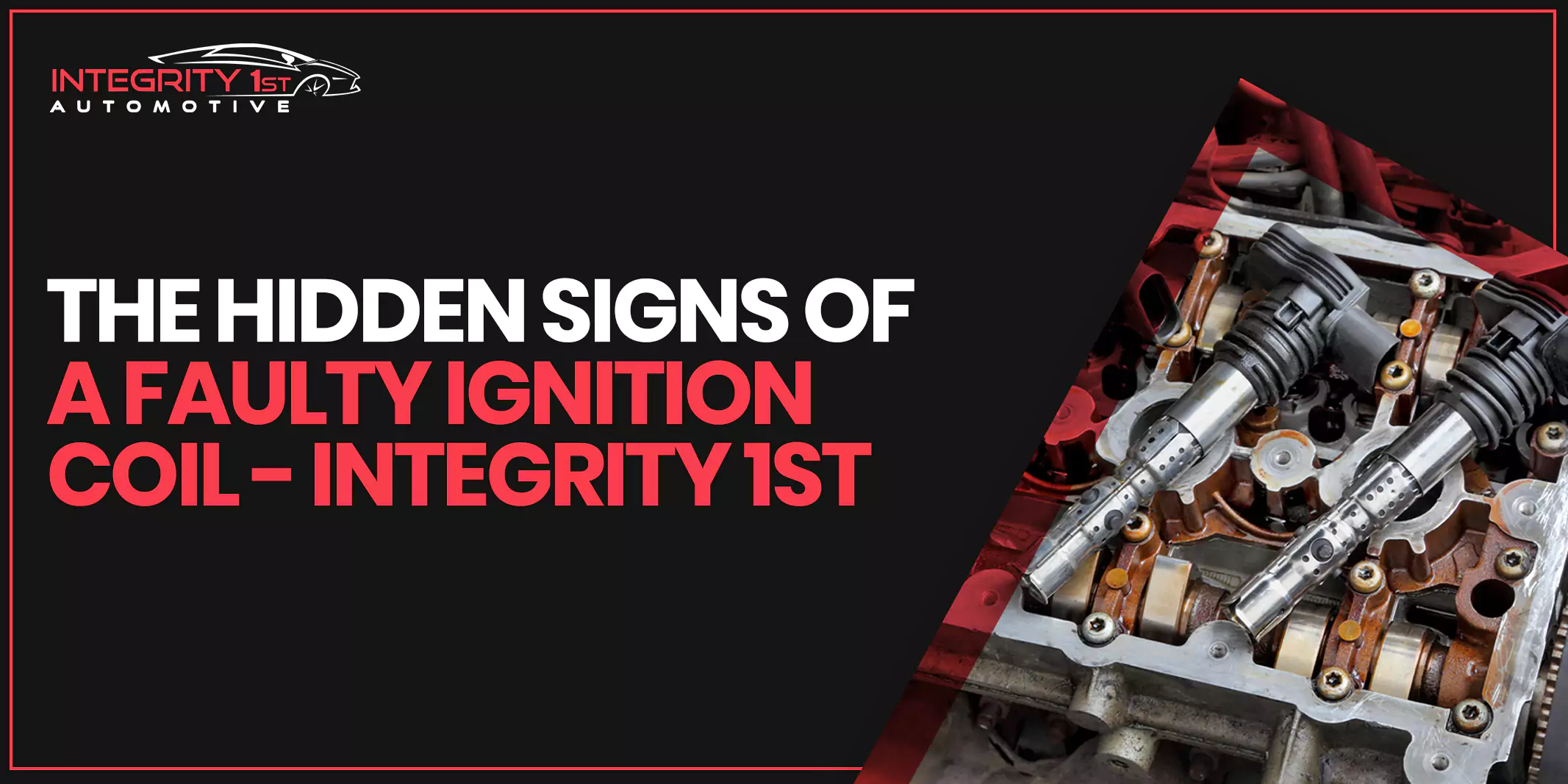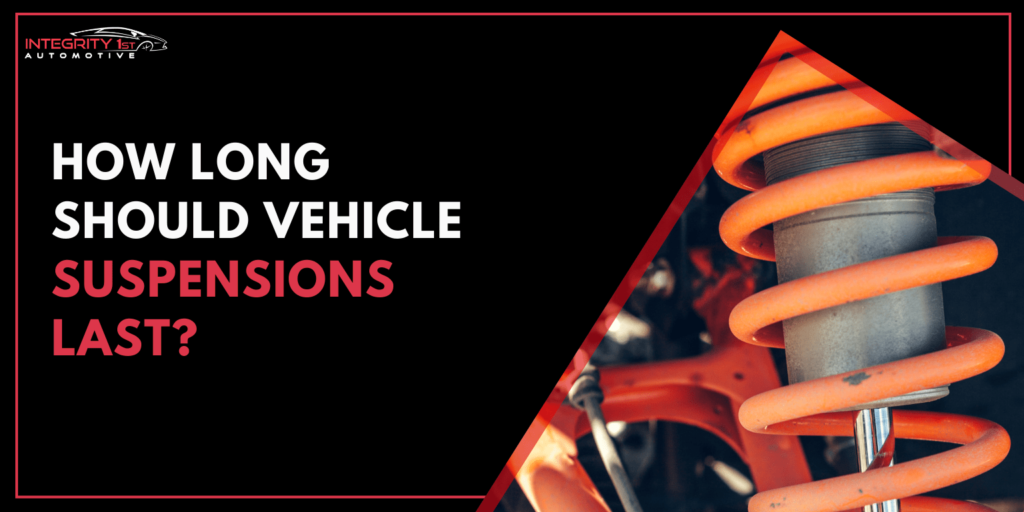The ignition coil might seem like an insignificant component, but it plays a crucial role in the smooth operation of your vehicle. One of the primary functions of an ignition coil is to generate the high-voltage electrical pulses needed to ignite the fuel-air mixture within the engine’s cylinders.
However, a faulty ignition coil causes many problems that may lead to dangerous situations, including sluggish acceleration, misfiring engine, repeated stalling of the vehicle, thick exhaust smoke, etc.
In this article, we will highlight 11 symptoms of a bad ignition coil and also discuss how to replace a bad engine coil in your vehicle.
Stay with us!
11 Signs of a Bad Ignition Coil
There are several signs of a faulty ignition coil that affects your vehicle’s performance. It’s better to recognize these signs early to prevent potential engine damage and other serious problems.
Here are 11 signs of ignition coil failure you should always look out for.

Illuminated Check Engine Light
One of the major common symptoms of a bad engine coil is an illuminated check engine light. This light illuminates when the onboard computer in your vehicle detects misfires and alerts you to a potential problem.
Misfiring Engine
When the spark plug fails to ignite the fuel-air mixture in the cylinder, misfires occur, causing the engine to run evenly.
Difficulty Starting Your Engine
Sometimes, it’s just difficult to start the engine due to a faulty ignition coil. That’s because a bad coil never generates enough voltage to ignite the fuel-air mixture, resulting in a cranking engine that fails to start.
Reduced Power and Sluggish Acceleration
A faulty ignition coil can adversely affect your vehicle’s power and overall performance, leading to sluggish acceleration.
Worsening Fuel Efficiency
A faulty ignition coil can sometimes cause misfires, leading to decreased fuel efficiency. It happens when the engine isn’t working properly and consumes more fuel to produce the same amount of power.
Backfiring from the Exhaust
A backfire in your exhaust is a clear symptom of a failed ignition coil. Backfiring occurs when unburned fuel is ignited in the exhaust system of your vehicle. It may lead to incomplete combustion and unburned fuel escaping into the exhaust.
Sputtering, Coughing, and Banging Noises
Ever heard those annoying yet scary sputtering, coughing, and banging noises? These noises are associated with misfires due to a faulty ignition coil and can be quite dangerous for your vehicle.
Rough Idling and Vibrations
When one or more cylinders are not firing correctly, the engine’s idle can become unstable, leading to shaking and vibrating.
Repeated Stalling
If your vehicle is stalling repeatedly, especially at low speed, it’s one of a few weak ignition coil symptoms. This is mainly due to the disruptions caused by misfires, causing the engine to shut down.
Jerking and Shaking While Driving
Sometimes, your vehicle jerks or shakes while driving, and while common in most cases, this could be a sign of a bad engine coil. That’s because misfires can usually cause the engine to lose power, leading to a loss of control and a rough ride ahead.
Thick Exhaust Smoke
Thick exhaust smoke is one of the few bad ignition coil symptoms, which happens because of unburned fuel that expels through the exhaust system.
What Do Ignition Coils Do?
In simple words, ignition coils help your car to start and run smoothly.
Here’s how this simple process works.
Ignition coils take a small electric current from your vehicle’s battery and supercharge it to a higher voltage. This voltage is later sent to spark plugs, creating a spark that ignites the fuel-air mixture in the engine’s cylinder.
Without the ignition coils, your fuel-air mixture wouldn’t ignite. As a result, the engine will never run.
Where Is a Vehicle’s Ignition Coil?
The location of your vehicle’s ignition coil depends on the make and model of your vehicle. However, here are some common places to find an ignition coil.
- On top of the engine
- Inside the air intake manifold
- On the side of the engine block, near the spark plugs
Note: Just in case, you’re unsure about the location of the ignition coil, consult your owner’s manual or contact a professional.
Why Do Ignition Coils Fail? Reasons for Ignition Coil Failure
Imagine you’re driving your car smoothly, but then; you feel a sudden jolt—your car begins to shake violently, and the engine starts stumbling, misfiring with a rhythm that is both unsettling and alarming.
There are many reasons why your engine coil fails. However, some of the most common are below:

Incorrect Air-Fuel Ratio
If your air-fuel mixture is lean or rich, it puts excessive strain on the ignition coil. A lean mixture results in overheating of the coil and a rich mixture usually creates unnecessary electrical stress, resulting in ignition coil failure.
Incorrect Spark Plug Gap
If the gap in your spark plug is too wide or too narrow, the performance of your engine coil will be compromised. A wide gap puts additional stress on the coil to create a spark while a narrow gap strains the coil with incomplete combustion.
Valve Cover Leaks
The valve cover leaks are one of the most common causes of a bad coil. The leaks in your valve cover allow oil to seep into the ignition coil, resulting in a short circuit and ultimately leading to ignition coil failure.
How Do You Replace a Damaged Ignition Coil?
Is your ignition coil faulty? Replacing an ignition coil can be an easy DIY project. However, we advise you to exercise proper caution and follow procedures to avoid engine damage.
Here are two major things for damaged ignition coil replacement:
- Avoid over-torquing because it leads to breakage. Follow your vehicle’s user manual for the correct torque specifications. Always use a torque wrench to ensure proper tightening.
- Invest in high-quality coils from reputable brands. Avoid getting coils from random stores because it affects your vehicle’s performance.
Here’s how to replace a faulty ignition coil in 9 easy steps:
- Find the location of your ignition coil
- Disconnect the battery to prevent electrical shocks
- Remove the coil cover that protects the ignition coil
- Unplug the electrical connector from the ignition coil
- Loosen the mounting bolts or clips and remove the coil from the engine
- Install the new coil in the same position as the old coil and use appropriate fasteners to secure it
- Plug the electrical connector back into the new coil
- In case, the previous coil cover is not suitable, replace it
- Reconnect the battery
While replacing your ignition coil is a straightforward process, it can get tricky for those with little to no experience.
If you’re someone who needs help replacing the faulty ignition coil, Integrity 1st Automotive offers comprehensive auto repair and maintenance services, ensuring the optimal performance of your vehicle. We not only provide ignition coil replacement services, but also offer premium auto repair services, including oil changes, engine repair, and general auto care.
Visit Integrity 1st Automotive Today
Still wondering what is wrong with your engine? Does diagnosing the problem feel like a never-ending, tedious puzzle? No worries!
Integrity 1st Automotive provides professional help with the expertise and experience to promptly diagnose your automotive problems and provide viable solutions.
Our services are not only limited to bad ignition coil replacement, but we also offer:
- Engine repair and diagnostics
- Tune-ups and maintenance
- Routine oil changes and fluid flushes
- Brake services
- Tire repair and replacement
…and much more.
Our team makes sure your automotive issues are addressed timely and solved efficiently with 100% customer satisfaction and reliability.
Now You Know About Faulty Ignition Coil
Is your engine jerking or sputtering while accelerating? Are you feeling your car is a bit sluggish and the engine makes backfiring noises? You might be encountering a faulty ignition coil.
The ignition coil is like a tiny spark generator for your vehicle that takes a small electrical current from the battery and boosts it up to a super-high voltage. But sometimes, the ignition coil fails, resulting in a misfiring engine or backfiring from the exhaust. These symptoms, even though, seem insignificant, affect the overall performance and drivability of your vehicle.
Therefore, to address the faulty ignition coil, it’s important to replace it with a new coil from a reputable brand. Replacing an ignition coil is easy as a breeze, but still demands technical knowledge.
Therefore, if you’re a novice with zero technical experience, it’s always recommended to consult a professional for proper coil replacement.
We, at Integrity 1st Automotive specialize in coil replacement, fuel changes, and other important automotive work suitable for your needs and requirements. If you want your ignition coil replaced by industry experts, contact Integrity 1st Automation today.
FAQs
Can You Drive with a Bad Ignition Coil?
Yes, you can drive with a bad ignition coil, but it’s not recommended because it can lead to further engine damage.
How Long Can You Drive With A Faulty Ignition Coil?
It depends upon the severity of the problem and how long it persists. But it’s not ideal to drive with a bad engine coil for an extended period.
How Can You Tell If Your Ignition Coil Is Bad?
Some common signs of a faulty ignition coil include misfiring, reduced power, rough idle, difficulty starting, and thick exhaust smoke.
How Much Does It Cost To Replace An Ignition Coil?
It depends upon the severity of the issue and the make and model of your vehicle. However, the cost of ignition coil replacement is quite affordable compared to other serious engine issues.
What Is The Easiest Way To Check An Ignition Coil?
Get it checked by a professional mechanic so they use diagnostic tools to identify the main issues and suggest necessary repairs.
What Is The Life Expectancy Of An Ignition Coil?
The life expectancy of an ignition cell is typically 50,000 to 100,000 miles but it also depends on many factors, such as driving conditions, maintenance habits, and quality of the coil.




